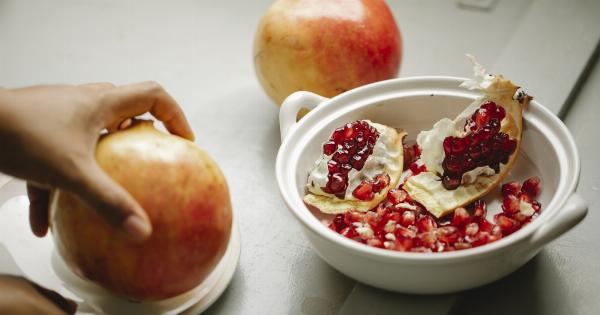When it comes to maintaining a healthy diet, vegetables are undoubtedly the superheroes of the food world. Packed with essential vitamins, minerals, and fiber, they provide numerous health benefits that can protect against various diseases.
However, not all vegetables are created equal. While most vegetables offer incredible benefits, there are a few that may not be suitable for everyone. In this article, we will explore eight veggies that you may want to consider avoiding to keep yourself in the best of health.
1. Nightshades: Tomatoes, Peppers, Potatoes, and Eggplants
The nightshade family, which includes tomatoes, peppers, potatoes, and eggplants, contains a natural compound called solanine. While solanine is generally harmless to most people, certain individuals may be sensitive to it.
People with conditions like arthritis, inflammation, and digestive issues may find that consuming nightshade vegetables exacerbates their symptoms. If you belong to this group, it might be worth experimenting with eliminating nightshades from your diet to see if it leads to any improvements in your overall well-being.
2. Cruciferous Vegetables: Broccoli, Cauliflower, and Cabbage
Cruciferous vegetables like broccoli, cauliflower, and cabbage are renowned for their cancer-fighting properties. They contain compounds called glucosinolates, which are converted into cancer-fighting substances in the body.
However, these vegetables also contain a type of sugar called raffinose, which can be difficult to digest for some individuals. This can lead to bloating, gas, and discomfort. If you experience digestive issues after consuming cruciferous vegetables, try cooking them thoroughly or experiment with other non-cruciferous veggies to avoid any health woes.
3. Onions and Garlic
Onions and garlic are staples in many cuisines around the world. They impart a unique flavor and aroma to dishes, but they can also be problematic for some people.
Both onions and garlic contain fructans, a type of carbohydrate that can cause digestive issues, particularly in those with irritable bowel syndrome (IBS). If you find that consuming onions and garlic triggers symptoms like bloating, cramping, or diarrhea, consider cutting them out of your diet or using them in moderation.
4. Legumes: Beans, Lentils, and Peas
Legumes such as beans, lentils, and peas are excellent sources of plant-based protein, fiber, and essential nutrients. However, some individuals may experience gastrointestinal distress when consuming legumes.
This is due to their high content of oligosaccharides, a type of carbohydrate that can ferment in the gut, causing gas, bloating, and discomfort. To reduce the risk of these symptoms, soak dried legumes overnight before cooking, or try adding small amounts of legumes to your diet gradually.
5. Spinach
Spinach is often praised for its high iron content and its role in promoting healthy blood. However, it is also a vegetable that is high in oxalates, which can contribute to the formation of kidney stones in susceptible individuals.
If you have a history of kidney stones or are at a higher risk of developing them, it may be wise to limit your intake of spinach and opt for other leafy greens with lower oxalate content, such as kale or Swiss chard.
6. Sweet Corn
Sweet corn is a summer staple for many people, but it is not suitable for everyone. Corn is considered a high-glycemic vegetable, meaning it can cause a rapid spike in blood sugar levels.
This can be problematic for individuals with diabetes or those who are watching their blood sugar levels. If you fall into these categories, it may be best to enjoy corn in moderation or choose lower-glycemic vegetables like green beans or zucchini instead.
7. Beets
Beets are often praised for their vibrant color and their potential to enhance athletic performance. However, they are also a vegetable that is high in naturally occurring nitrates.
While nitrates can have positive effects on blood pressure and exercise performance, they can also interact with certain medications, such as those for erectile dysfunction or angina. If you are taking any medications and regularly consume beets or beet juice, it is essential to discuss this with your healthcare provider to avoid potential drug interactions.
8. Canned Vegetables
Canned vegetables may seem like a convenient option, but they often come with added sodium and preservatives to extend their shelf life. Excess sodium intake can lead to high blood pressure, heart disease, and other health issues.
Whenever possible, opt for fresh or frozen vegetables, as they retain more of their nutrients and offer a healthier alternative.
While the vegetables mentioned above may not be suitable for everyone, it’s important to note that they still have their own unique nutritional benefits.
If you don’t have any specific health concerns or sensitivities, incorporating these vegetables into your diet is generally considered beneficial.




























